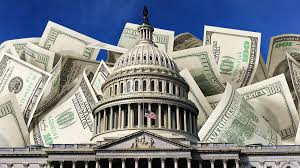The American Government Debt Crisis


The debt crisis debate involves significant viewpoints from both sides. Advocates for addressing high national debt stress the importance of fiscal responsibility, arguing that excessive debt can lead to higher interest rates, reduced national savings, and increased vulnerability to economic shocks. They caution that burdening future generations with debt could stifle economic growth and limit government flexibility in responding to future crises. On the other hand, critics of immediate austerity measures argue that strategic borrowing and spending are necessary for stimulating economic growth, especially during downturns. They point out that investments in infrastructure, education, and healthcare can drive long-term prosperity and that overly aggressive debt reduction can stifle economic recovery and harm vulnerable populations. This debate reflects the tension between short-term economic stimulus and long-term fiscal sustainability.